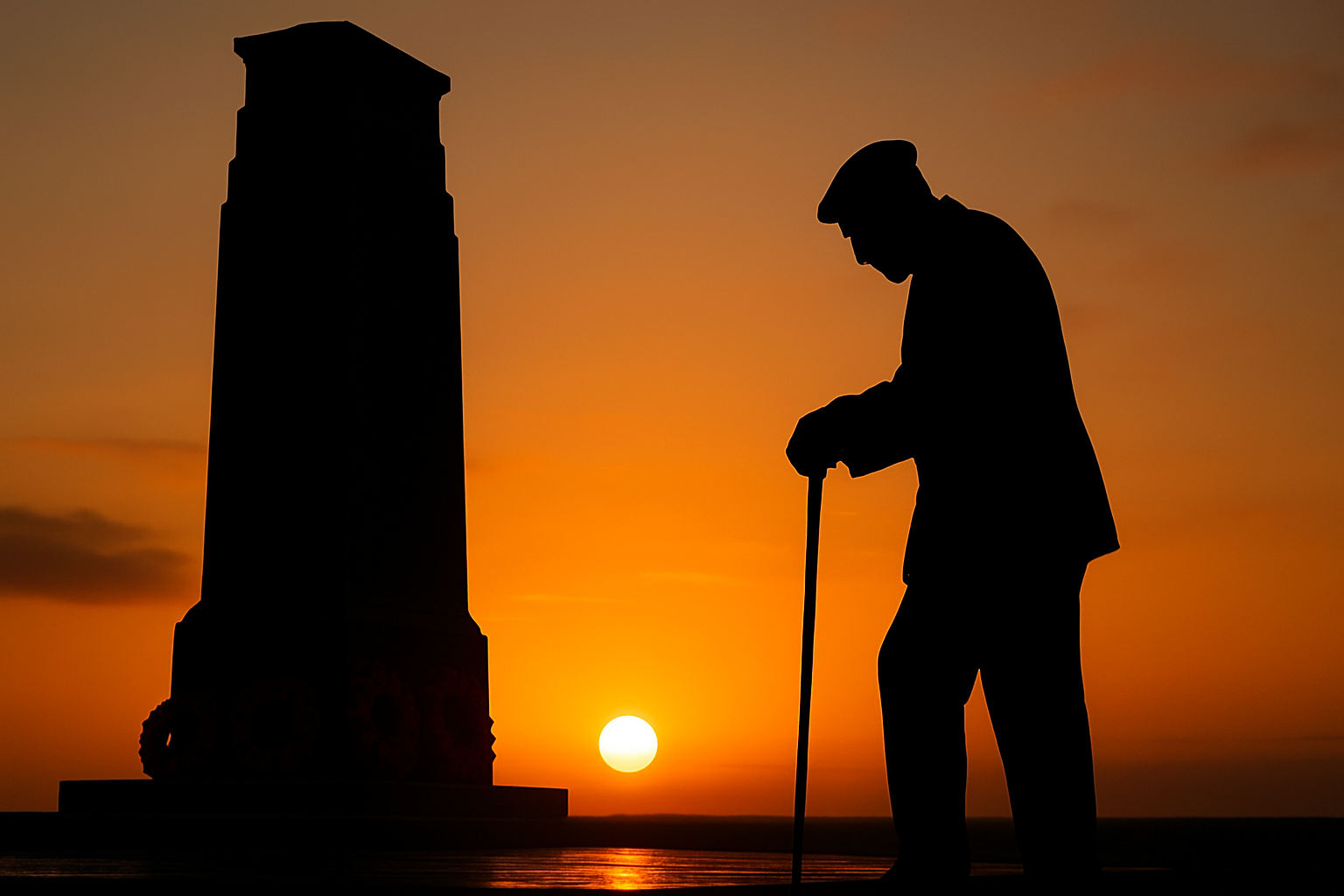“Every man thinks meanly of himself for not having been a soldier.”
Samuel Johnson’s line, which Bernard Cornwell cited to explain his own admiration for soldiers despite not serving, might make us all think about who we truly revere. What about the psychology and the impact in our organisarions? Johnson noticed a stubborn social emotion: the uneasy mix of respect and self-diminishment a non-combatant can feel in the presence of courage tested under arms. However, this may be a useful vehicle to consider our own sense of envy in other areas too, and how we react to the success of others.
Johnson was describing a tendency, not issuing a universal law and thus his observation might be less about militarism than about status and comparison. Military service carries a bundle of meanings in most societies, courage, sacrifice, steadiness when it counts. People who have not crossed that threshold can admire it, and, at times, feel quietly lesser for not having done so.
"We were soldiers once and young!" General HG Moore, book and film
Organisational psychology research has language for this emotion of envy. Envy, researched far beyond the schoolyard, splits into two forms: benign envy, which inspires effort and learning from those we admire, and malicious envy, which protects our status by subtly devaluing the other (Van de Ven, Zeelenberg, & Pieters, 2009). Johnson’s line captures the seed of both. The “meanly” points to a dip in self-regard, which can go one of two ways: either “I should raise my game,” or “I will lower yours.”
Add social identity dynamics and the picture sharpens. We maintain positive identities by favouring our in-group and smoothing away threats from out-groups (Tajfel & Turner, 1979). Veterans often sit in a peculiar space: celebrated as a symbolic in-group, “our service men and women," yet, in workplace practice, treated as an out-group whose experience does not quite “fit.” My own research into leadership among veterans also highlighted this paradox. So as we approach Remembrance again let us consider again, "Lest we forget."
The Monday gap: what we say versus what we do
Across my own research on veterans transitioning to civilian roles, I heard a recurring tension. Organisations proclaim leadership, resilience, and teamwork as prized attributes. Then CVs that demonstrate those qualities, under severe constraints, with real consequences, are set aside as “hard to translate,” “too directive,” or “not quite our culture.”
Could it be that, all too often, no one names the thing beneath the thing: the mild status threat of someone who has actually led in extremis. Praise on Sunday, hesitation on Monday.
This does not mean civilian leadership is lesser, nor that all military experience maps neatly onto corporate life. It is a call for honesty about the gap between stated values and selection behaviours. If we admire courage and stewardship, why do we so often quarantine them to ceremony?
A contrary invitation for Remembrance Sunday
Remembrance should widen, not narrow, our imagination. If Johnson is right about a quiet envy, we can choose the benign route, turn admiration into learning and opportunity. Four practical moves you can take forward into your organisation for any identifiable group:
- Rectify the names. Confucius urged that titles match realities. If we publicly value service, then privately value it in hiring and promotion. Translate roles precisely: mission command to empowered execution, after-action reviews to learning loops, risk management to operational resilience. Avoid the catch-all “culture fit,” which too often masks status anxiety. Who are the do-ers? Consider all aspects of DE&I and vlaue equity for the trust it builds
- Rewrite the selection proxy and Performance Management. Replace vague “leadership presence” with behavioural evidence. Ask for episodes where the candidate created clarity under ambiguity, built trust across functions, or recovered from failure in a way that strengthened the team. Veterans, and many others beyond the military, can meet those bars with specificity.
- Audit where admiration turns defensive. Track where strong resumes stall. Is it industry jargon? Fear of “rigidity”? Concerns about hierarchy? Test hypotheses with structured interviews, not folklore. Bring a veteran and a non-veteran leader into the calibration room and compare ratings on the same evidence.
- Shift homage into habit. Ritual is good, but systems are better. Commit to a small intake target; pair new hires with a mentor who has navigated the transition; run deliberate translation workshops where teams map military skills to business processes. Measure retention and performance at 6, 12, and 24 months and publish what you learn inside the firm.
A philosophical note on courage and humility
Aristotle wrote that courage sits between rashness and cowardice, guided by practical wisdom. The point is not spectacle but steadiness in right measure. Veterans do not own this virtue, yet many have rehearsed it under conditions most of us will never face. The adult move, is to let that fact humble us in the best sense: to be teachable, and to act accordingly. If you ask a question in an interview and you get an example story from a context you can ahrdly consider ever having to face then you can still follow up with more open ended questions - what did you learn? How does tha inform you now?
Critical reflection
We should resist romanticising military experience or using it as a moral trump card. Not every veteran wants, or is ready for, a leadership role in a new domain, and importing martial metaphors wholesale can backfire in collaborative, creative work. The transition from the military is also referred to as a journey, think Homer, the Iliad and the Odyssey - a homecoming. Behaviour matters, when organisations declare that they value leadership, resilience, and service, they should build hiring and development practices that recognise those qualities wherever they are found, including among those who served. Otherwise remembrance is sentiment untethered to structure.
We might also ask, what chance do other groups have in our organisation if those we claim to revere so highly are also othered out?
If we praise courage on Sunday, let’s stop penalising it on Monday.
References
- Boswell, J. (1791). The Life of Samuel Johnson.
- Tajfel, H., & Turner, J. C. (1979). An integrative theory of intergroup conflict. In The Social Psychology of Intergroup Relations (pp. 33–47).
- Van de Ven, N., Zeelenberg, M., & Pieters, R. (2009). Leveling up and down: The experiences of benign and malicious envy. Emotion, 9(3), 419–429.





.svg)
.svg)
